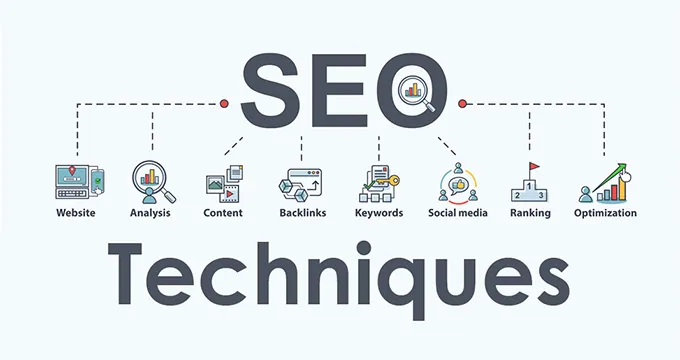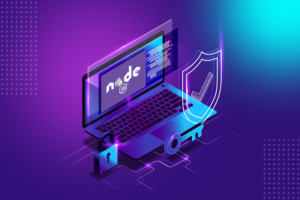15 Actionable SEO Hacks for Digital Marketing Domination

One of the most effective ways to boost your online presence and drive more traffic to your website is through Search Engine Optimization (SEO). By leveraging the power of SEO hacks, you can optimize your website for search engines and improve your ranking on the search engine results pages (SERPs). In this article, we’ll explore 15 actionable SEO hacks that you can implement today to achieve digital marketing domination.
Conduct Keyword Research:
Conducting thorough keyword research is the cornerstone of any successful SEO Company. Start by brainstorming relevant topics and keywords related to your industry or niche. Then, use keyword research tools like Google Keyword Planner, SEMrush, or Ahrefs to identify high-volume keywords with low competition. Pay attention to long-tail keywords, as they often have less competition and can attract highly targeted traffic to your website. Additionally, analyze your competitors’ keywords to uncover opportunities for optimization and differentiation. By investing time and effort into keyword research, you can uncover valuable insights that will guide your SEO efforts and drive results.
Optimize On-Page Elements
optimizing on-page elements is crucial for improving your website’s search engine visibility. Start by optimizing your title tags, meta descriptions, and headers to include relevant keywords that reflect the content of your pages. Ensure that your URLs are clean and descriptive, incorporating keywords where appropriate. Additionally, optimize your content for readability and user experience by breaking it up with headers, bullet points, and multimedia elements.
Create High-Quality Content
Content is king in the world of SEO. Produce informative, engaging, and relevant content that provides value to your audience. This not only attracts visitors to your site but also encourages them to stay longer, reducing your bounce rate.
Optimize Page Speed
Page speed is So Important it is the best ranking factor for search engines. Improve your website’s loading time by optimizing images, minifying CSS and JavaScript files, and leveraging browser caching.
Mobile Optimization
With the majority of internet users accessing websites from mobile devices, it’s essential to optimize your site for mobile responsiveness. Ensure that your website is mobile-friendly and provides a seamless user experience across all devices.
Build High-Quality Backlinks:
Building high-quality backlinks is essential for boosting your website’s authority and improving its search engine ranking. Focus on acquiring backlinks from reputable websites within your industry or niche. Look for opportunities to collaborate with influencers, guest post on relevant blogs, or participate in industry forums and discussions. Prioritize quality over quantity when it comes to backlinks, as a few authoritative links can have a more significant impact than many low-quality ones. Monitor your backlink profile regularly using tools like Ahrefs or Moz to identify and disavow any toxic or spammy links that could harm your site’s reputation. By building high-quality backlinks, you can strengthen your website’s authority and credibility in the eyes of search engines, ultimately leading to improved rankings and organic traffic.
Utilize Internal Linking:
Utilizing internal linking is a powerful strategy to improve your website’s SEO and enhance user experience. Identify relevant pages within your website and strategically link them together using anchor text that includes relevant keywords. Internal links help search engines understand the structure and hierarchy of your website, allowing them to index and rank your pages more effectively. Additionally, internal linking distributes link equity throughout your site, boosting the authority of important pages and improving their chances of ranking higher in search results. Regularly audit your internal links to ensure they remain relevant and up-to-date, and consider implementing a hierarchical linking structure to prioritize important pages.
Optimize Images:
Optimize your images by using descriptive filenames and alt tags that include your target keywords. This improves accessibility for visually impaired users and helps search engines understand the content of your images.
Leverage Schema Markup:
Leveraging schema markup can significantly enhance your website’s visibility and performance in search engine results pages (SERPs). By implementing schema markup, you provide search engines with additional context about your content, making it more relevant and informative for users. Schema markup enables rich snippets, which can enhance your search listings with additional information such as ratings, reviews, prices, and event details.
Monitor Your Site’s Performance:
Track key metrics such as organic traffic, keyword rankings, and conversion rates to identify areas for improvement . Monitoring your site’s performance is essential for optimizing your SEO strategy and achieving digital marketing success. Utilize tools like Google Analytics and Google Search Console to track key metrics such as organic traffic, keyword rankings, and conversion rates. Pay attention to trends over time and identify any fluctuations or anomalies that may indicate issues with your website or SEO efforts. Regularly review your site’s performance data to uncover insights and opportunities for improvement. By staying proactive and informed, you can make data-driven decisions to refine your SEO strategy and maximize your website’s potential for success in the competitive online landscape.
Create Engaging Meta Descriptions
Write compelling meta descriptions that entice users to click on your search listings. Use action-oriented language and include your target keywords to improve your click-through rate (CTR).
Crafting engaging meta descriptions is crucial for enticing users to click on your search listings. Keep them concise, informative, and action-oriented, compelling users to visit your website. Incorporate relevant keywords naturally to improve visibility and attract the right audience. Use persuasive language to highlight the value proposition of your content or products/services. Experiment with different calls to action to encourage clicks, such as “Learn More,” “Shop Now,” or “Get Started.” Regularly monitor the performance of your meta descriptions through tools like Google Search Console, and refine them based on click-through rates and user engagement.
Optimize for Local SEO:
if you have a physical location or serve a specific geographic area, optimize your website for local SEO. Claim your Google My Business listing, optimize your NAP (Name, Address, Phone Number) information, and solicit reviews from satisfied customers.
Repurpose Content:
Repurpose your existing content into different formats such as videos, infographics, or podcasts to reach a wider audience and attract more traffic to your site.
Stay Up-to-Date with Algorithm Changes:
Stay informed about changes to search engine algorithms and adjust your SEO strategy accordingly. Subscribe to industry blogs, attend webinars, and participate in online forums to stay ahead of the curve. Staying up-to-date with algorithm changes is paramount in the dynamic world of SEO. Search engines like Google frequently update their algorithms to improve search results and user experience. Keep a close eye on industry news, blogs, and official announcements from search engine authorities to stay informed about the latest updates.
Continuously Test and Iterate:
SEO is an ongoing process that requires constant testing and iteration. Experiment with different strategies, monitor the results and refine your approach based on what works best for your website.
Conclusion
In conclusion, mastering the art of SEO is essential for digital marketing domination. By implementing these 15 actionable SEO hacks, you can improve your website’s visibility, attract more organic traffic, and ultimately achieve success in the competitive world of online marketing.








